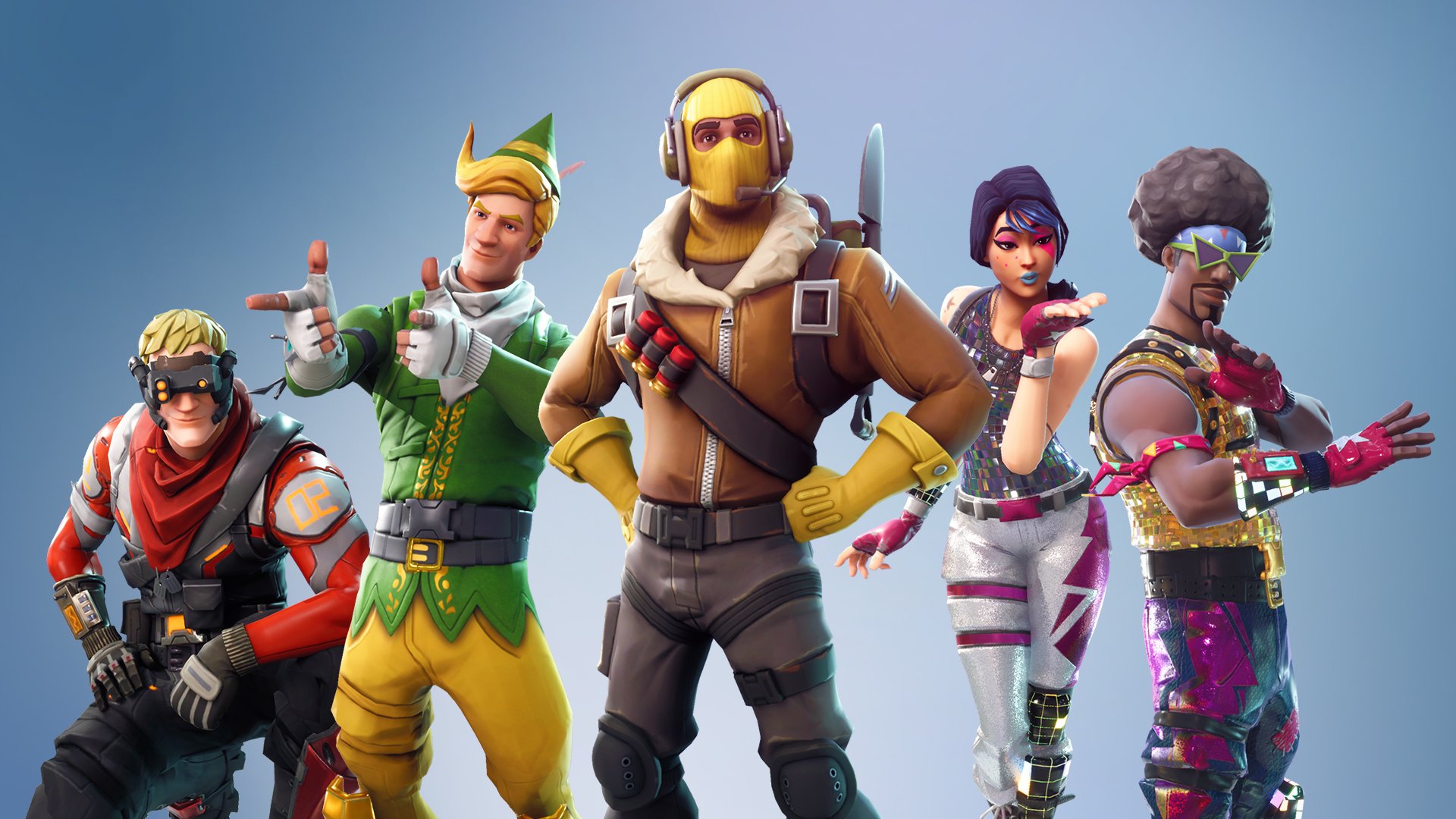Epic is making Fortnite's cross-platform features free for all developers
A suite of cross-platform login, matchmaking, achievement, and other services will be rolled out next year.

Fortnite is a massive, cross-platform, online undertaking that supports millions of people playing at the same time, and the systems that enable that functionality "are expensive to build, test, and harden in real-world conditions," says Epic. Because it has already done the heavy lifting to build those services, and presumably also because it's enjoying mind-boggling success as a result, Epic has decided to make Fortnite's cross-platform software infrastructure available to other developers for free.

What's new with the latest Fortnite season
The best Fortnite creative codes
The optimal Fortnite settings
Our favorite Fortnite skins
The best Fortnite toys
"Throughout 2019, we’ll be launching a large set of cross-platform game services originally built for Fortnite, and battle-tested with 200,000,000 players across 7 platforms," Epic announced today. "These services will be free for all developers, and will be open to all engines, all platforms, and all stores. As a developer, you’re free to choose mix-and-match solutions from Epic and others as you wish."
The rollout will begin in mid-2019, first on PC and then on other platforms throughout the year, with "cross-platform login, friends, presence, profile, and entitlements" services. They'll be available on PC, Mac, iOS, Android, PlayStation, Xbox, and Switch—so, basically everything—"to the full extent each platform allows per-title," Epic said.
Once that's in place, it will be followed by:
- PC/Mac Overlay API (coming Q3 2019): Provides a user interface for login, friends, and other features in a game-agnostic, engine-agnostic way.
- Cross-Platform Voice Comms (coming Q3 2019 to all platforms): Epic is building a new in-game voice communications service supporting all platforms, all stores, and all engines, which will be available for free. (For developers needing an immediately-available voice solution, check out Discord, Vivox, TeamSpeak, Ventrilo, and Mumble.)
- Cross-Platform Parties and Matchmaking (coming Q3-4 2019 to all platforms)
- Cross-Platform Data Storage, Cloud-Saved Games (coming Q2 2019)
- Cross-Platform Achievements and Trophies (coming Q3 2019)
"The services described above are just our first steps," Epic said. "As you can see from our game and engine efforts, we’re also working on further support for user-generated content, enhanced social features, anti-cheat, and more."
Epic also emphasized the reliability of its services, which run primarily on Amazon Web Services data centers, and its cross-platform functionality and flexibility.
"For example, Fortnite runs on seven platforms that are fully interoperable; the game requires no login on console, and supports multi-platform login via Facebook, Google, Xbox Live, PSN, and Nintendo accounts, in addition to Epic accounts; and supports Twitch account linking," it said. "Besides these existing account and service integrations, we’re eager to work with partners on further efforts to connect accounts, gaming services, and cloud services for a more seamless experience."
The biggest gaming news, reviews and hardware deals
Keep up to date with the most important stories and the best deals, as picked by the PC Gamer team.
This is obviously useful for developers who want to incorporate cross-platform play into their games, and with the news earlier this month about the Epic Games Store's larger cut for developers, the company is clearly vying to be the official "Good Guy Greg" of the game business. There's still an awfully long way to go before Epic could meaningfully challenge Steam as the dominant marketplace, but its current efforts to garner goodwill from developers point to ambitious goals.
Epic said more information about its plan to make its online services available to other developers will be announced over the next few months.

Andy has been gaming on PCs from the very beginning, starting as a youngster with text adventures and primitive action games on a cassette-based TRS80. From there he graduated to the glory days of Sierra Online adventures and Microprose sims, ran a local BBS, learned how to build PCs, and developed a longstanding love of RPGs, immersive sims, and shooters. He began writing videogame news in 2007 for The Escapist and somehow managed to avoid getting fired until 2014, when he joined the storied ranks of PC Gamer. He covers all aspects of the industry, from new game announcements and patch notes to legal disputes, Twitch beefs, esports, and Henry Cavill. Lots of Henry Cavill.

